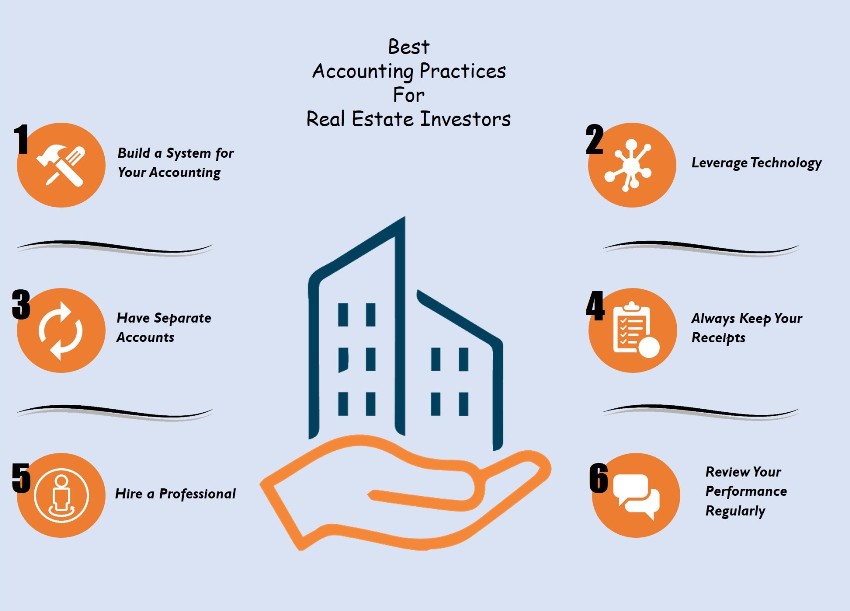Discover How Construction & Real Estate Investments and Growth Opportunities
Discover How Construction & Real Estate Investments and Growth Opportunities
Blog Article
Essential Techniques for Effective Building Audit in Building & Property Projects
In the vibrant landscape of building and actual estate, reliable bookkeeping techniques are critical to job success. Comprehending the foundational concepts of construction accountancy, paired with the execution of task setting you back techniques, can dramatically boost financial precision.
Comprehending Building And Construction Audit Fundamentals
Building and construction bookkeeping is a specific field that needs a detailed understanding of economic administration principles customized to the special obstacles of the construction industry. Unlike typical bookkeeping, which concentrates on a consistent collection of monetary activities, building accountancy must make up the dynamic nature of tasks, fluctuating costs, and varying timelines.
Crucial element of building and construction accounting consist of job setting you back, contract administration, and financial reporting. Task costing allows firms to track expenditures connected with details projects, guaranteeing that budgets are abided by and profitability is made the most of. Exact contract administration is vital as it involves the complex handling of adjustment orders, progression billing, and retention, all of which can considerably affect money flow and project outcomes.
Moreover, financial coverage in construction audit necessitates the usage of certain metrics, such as Job in Progress (WIP) records and percentage-of-completion audit. These devices supply stakeholders with insights into job efficiency and financial wellness. By grasping these fundamental elements, construction professionals can improve economic oversight, enhance decision-making, and eventually drive task success, ensuring that both lasting objectives and short-term purposes are met effectively.
Applying Job Costing Approaches
Efficient task setting you back approaches are crucial for construction companies to keep monetary control and improve productivity. By accurately tracking expenses related to each task, firms can identify areas of overspending, improve spending plan monitoring, and maximize resource appropriation. Implementing a systematic technique to task setting you back entails numerous essential techniques.
First, develop a clear structure for categorizing costs. Straight expenses, such as products and labor, should be separated from indirect prices, like expenses and administrative expenditures. This difference enables for even more exact tracking and evaluation.

Third, regularly testimonial and upgrade expense information to show real-time task conditions. This enables timely modifications and notified decision-making, making sure that tasks continue to be on track financially.
Making Use Of Building Monitoring Software Application
In today's affordable landscape, leveraging building and construction management software program has actually come to be an important tool for improving project performance and precision. These software application services enhance numerous facets of building accountancy, from budgeting to invoicing, allowing project managers to keep precise economic oversight. By integrating real-time data monitoring, groups can keep an eye on costs and change spending plans proactively, ensuring that tasks remain economically viable.

Additionally, building administration software application facilitates boosted interaction among stakeholders. With streamlined systems, all team members, from job managers to subcontractors, can access updated financial details, enhancing and reducing inconsistencies partnership. This openness not only aids in decision-making but additionally cultivates depend on amongst all parties included.
In addition, the automation of routine audit jobs reduces the probability of human errors, which can lead to costly monetary mismanagement. With attributes such as automated invoicing and expense monitoring, building and construction monitoring software application permits teams to concentrate on tactical preparation and execution as opposed to administrative jobs.
Inevitably, adopting building and construction management software stands for a financial investment in operational performance, placing companies to react agilely to the vibrant demands of construction and realty tasks. Welcoming these tools can significantly boost the standards of try these out building and construction accountancy methods.
Ensuring Conformity With Laws
Keeping conformity with policies is an essential facet of successful building and construction audit that can not be ignored. Construction jobs are subject to a myriad of regional, state, and federal regulations, impacting whatever from safety and security requirements to monetary reporting requirements (Real Estate Accountants). Therefore, it is essential for building and construction accountants to remain informed about these guidelines to stay clear of legal penalties and financial setbacks.
One secret approach is to execute durable monitoring systems that keep an eye on conformity in real-time. This might include regular audits of monetary documents, agreements, and allows to make certain alignment with regulatory expectations. Additionally, buying recurring training for accounting staff can promote a society of conformity, allowing the team to promptly adapt to governing adjustments.
Establishing clear interior plans you could try these out that describe conformity procedures makes certain that all group members comprehend their duties. By prioritizing conformity in building accounting practices, companies not only reduce dangers yet also boost their online reputation and operational effectiveness, eventually contributing to the project's overall success.

Surveillance Financial Performance Regularly
On a regular basis checking monetary performance is important for the success of building and construction projects, as it gives useful insights into budgeting, money circulation, and total task viability. Reliable economic oversight allows task managers to determine inconsistencies between forecasted and actual costs, enabling for timely corrective actions.
Applying an organized approach to economic monitoring includes using crucial performance indicators (KPIs) such as profit margins, price variances, and gained worth evaluation. These metrics promote a clear understanding of project health, enabling teams to make enlightened choices.
Frequent evaluations of monetary information also help in projecting future expenses and income, aiding to prevent capital lacks that can threaten task timelines. Furthermore, employing advanced audit software application can improve the monitoring process, providing real-time updates and improving information accuracy - Real Estate Tax Services.
On top of that, developing a regular for financial efficiency testimonials cultivates liability amongst staff member. Routine monetary conferences make certain that all stakeholders continue to be lined up on project goals and economic goals. By prioritizing consistent economic monitoring, construction firms can alleviate dangers, optimize source allowance, and ultimately boost project success.

Verdict
Finally, reliable building accountancy is essential for the effective administration of building and real estate tasks. By executing robust job setting you back approaches, leveraging innovative building and construction monitoring software program, ensuring regulatory compliance, and consistently keeping track of monetary performance, organizations can boost monetary oversight and reduce dangers. These essential methods not only promote adherence to budgets but likewise facilitate educated decision-making, ultimately leading to enhanced project end results and a knockout post lasting economic sustainability in the construction industry.
By grasping these foundational aspects, building and construction experts can enhance economic oversight, improve decision-making, and eventually drive project success, making sure that both lasting objectives and short-term goals are fulfilled efficiently.
These software remedies improve various elements of building and construction accounting, from budgeting to invoicing, making it possible for task managers to keep specific monetary oversight. By prioritizing constant monetary surveillance, building and construction firms can mitigate dangers, optimize source allocation, and inevitably improve task success.
In conclusion, effective construction bookkeeping is crucial for the successful management of construction and genuine estate tasks. By implementing robust job setting you back methods, leveraging sophisticated building and construction monitoring software program, guaranteeing regulatory conformity, and routinely keeping an eye on economic performance, organizations can improve financial oversight and minimize dangers.
Report this page